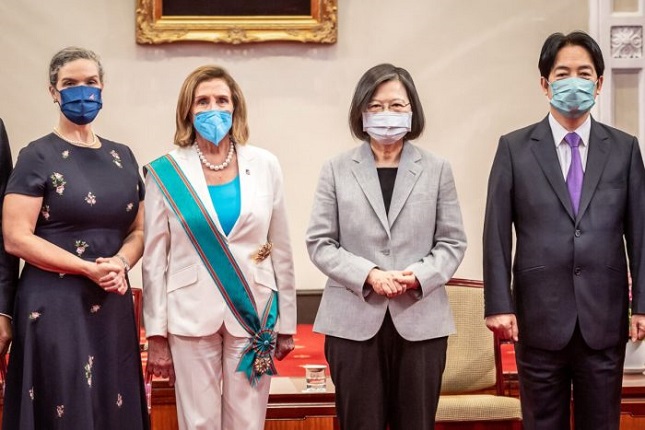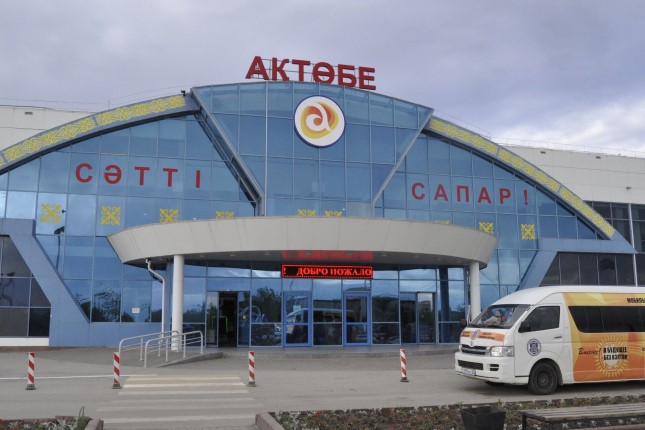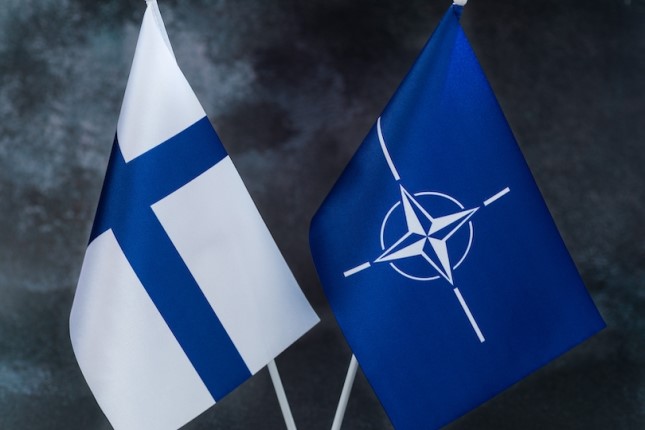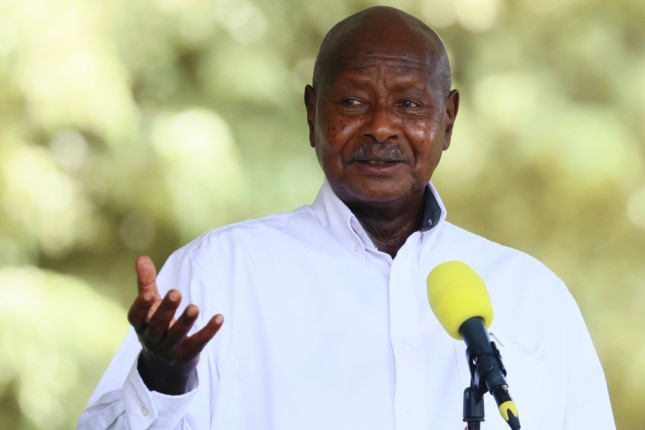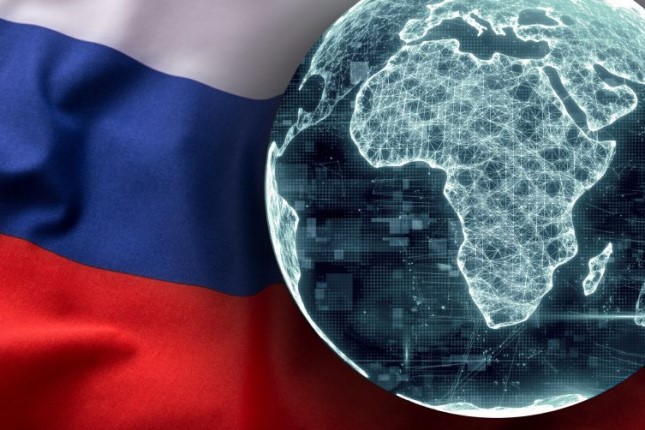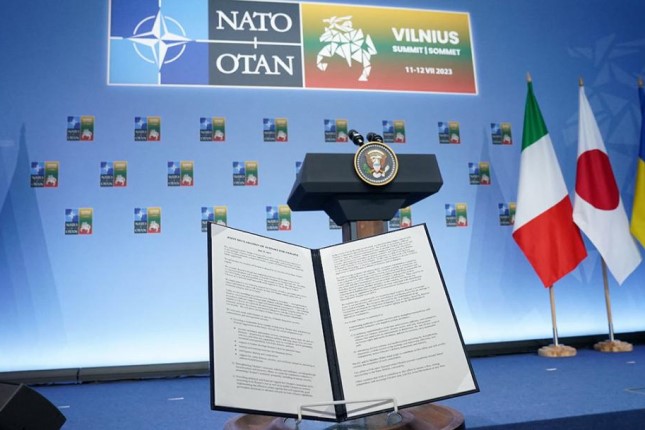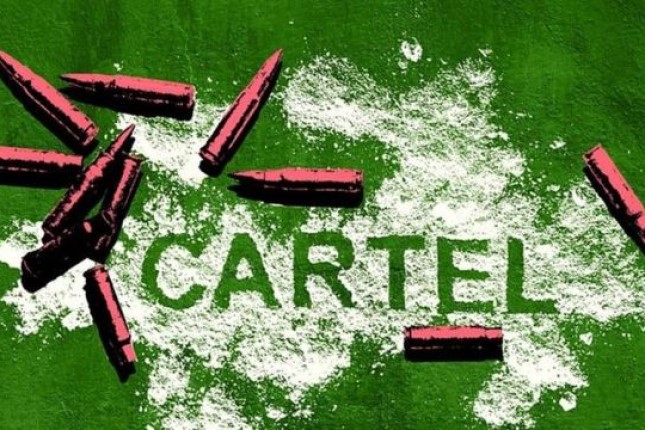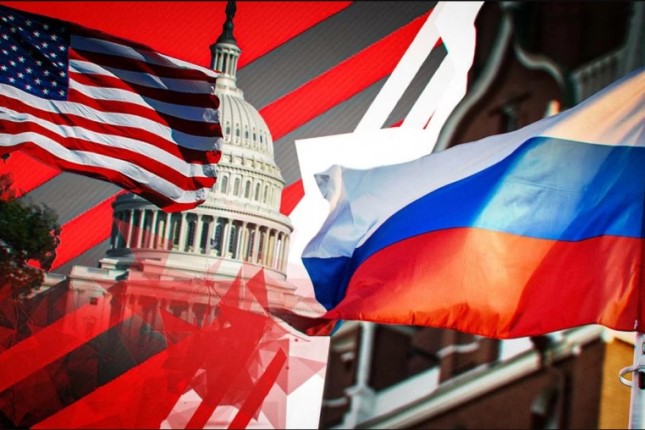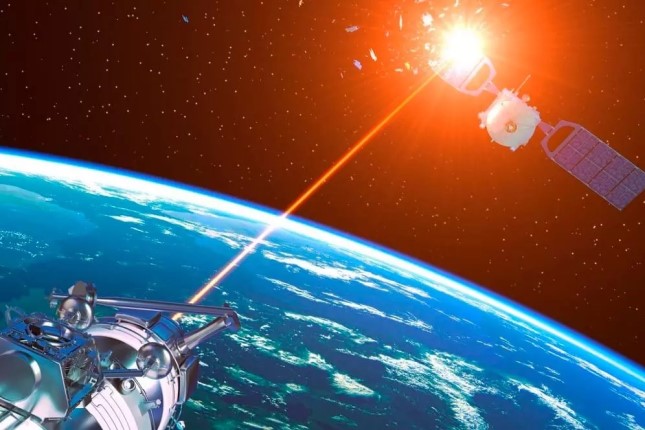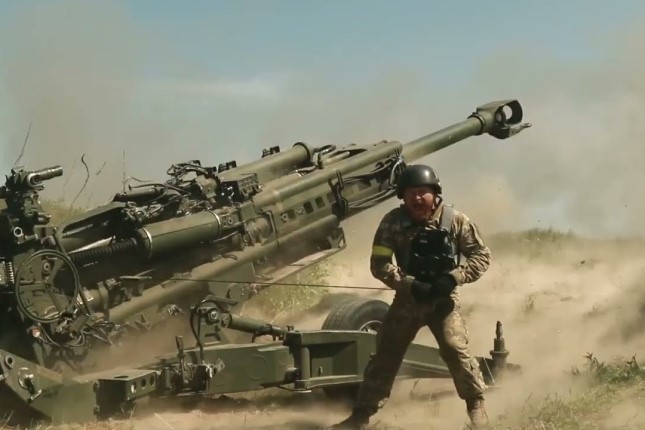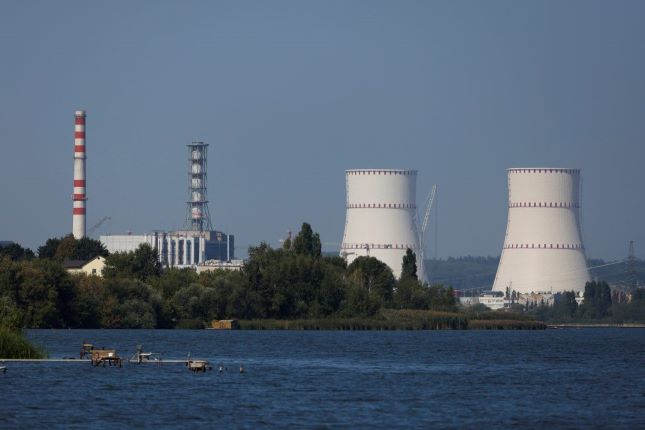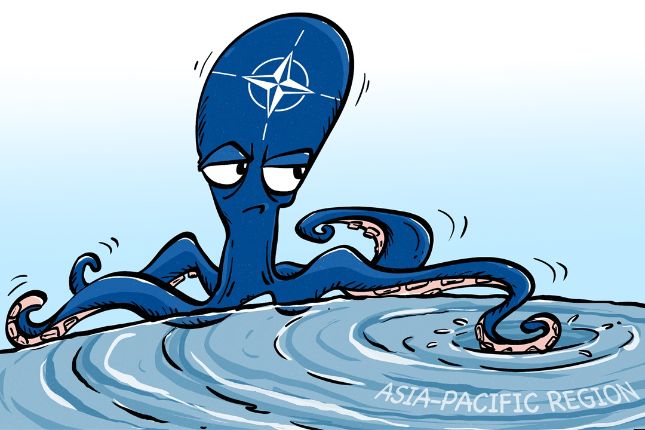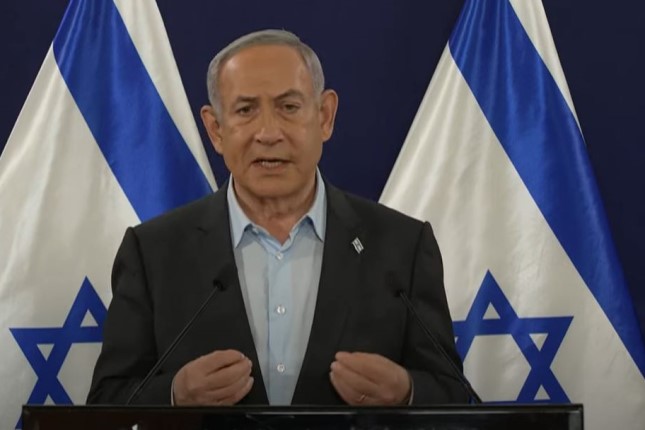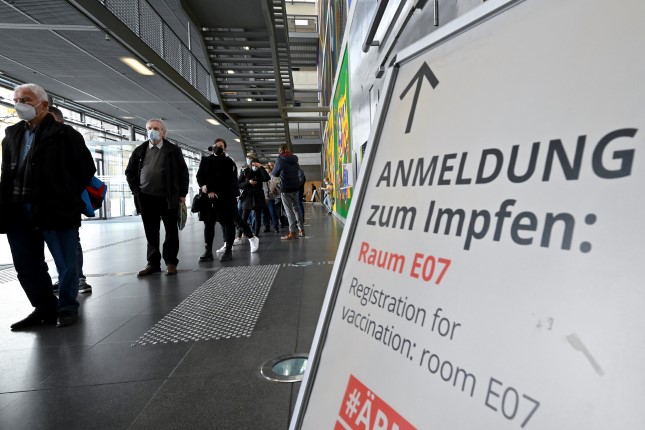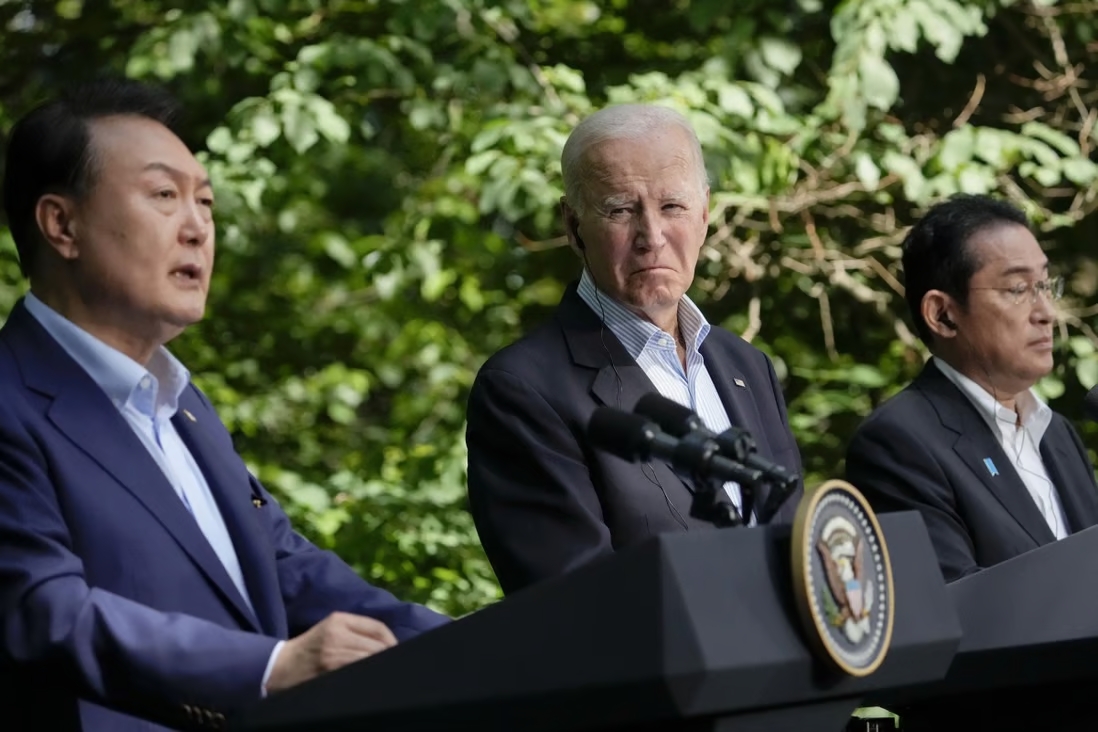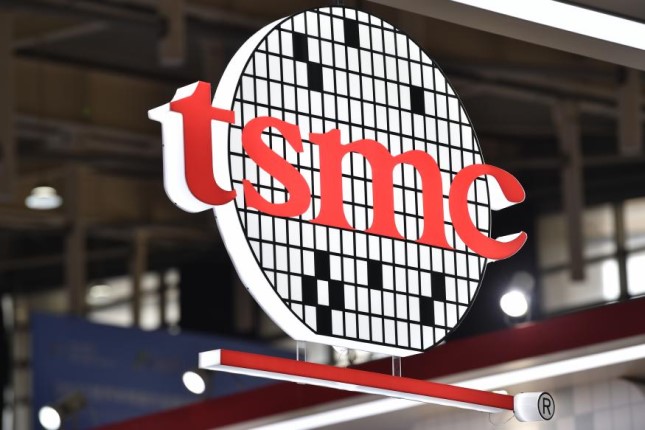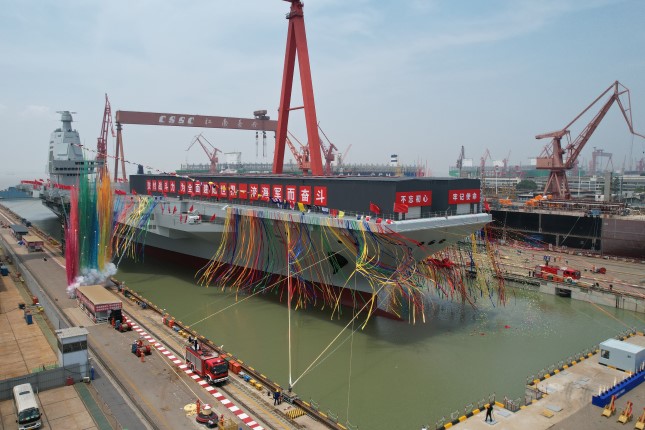Nancy Pelosi, speaker of the United States House of Representatives, was honoured with the highest civilian order of Taiwan, the turquoise ribbon of The Order of Propitious Clouds. However, such a poetic and peaceful epithet was totally inapplicable to describe the skies over the island on the night of Pelosi's visit. There was a distinct smell of a thunderstorm in the air.
Su-35 fighters of the Chinese People's Liberation Army Air Force, air defence systems, artillery, and even two carrier groups met the US Air Force Boeing C-40C with Pelosi on board. Six F-15 fighter jets and three KC135 Stratotanker air tankers were deployed from Kadena Air Base in Okinawa to escort the third person in the US hierarchy.
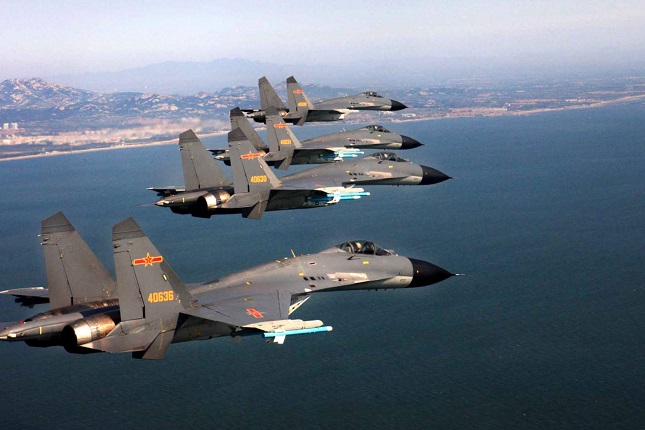
Air Force of the People's Republic of China. Photo: globalopsanalysiscenter.com
A record 700,000 people intently watched Pelosi's flight on Flightradar. At a certain point the service could not cope with the influx of website users and crashed. Meanwhile, the US House of Representatives speaker made it to Taiwan, inflicting a crushing blow on US-China relations.
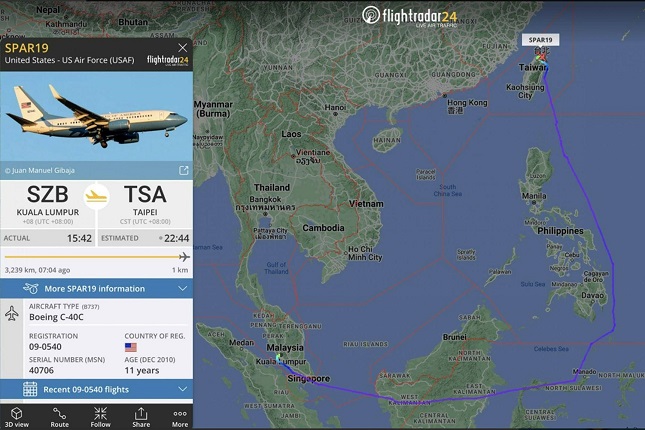
US Congresswoman Nancy Pelosi's plane flies to Taiwan. Photo: flightradar24.
Western political commentators can only explain the visit as the 82-year-old Pelosi's personal desire to make a historic gesture before stepping down as speaker. The Economist published a critical article headlined "Nancy Pelosi's trip to Taiwan highlights America's incoherent strategy. The Biden administration's policy is a mess".
The author emphasises that if this trip intended to show strength, they've achieved the opposite result. Biden administration demonstrated confusion and a lack of a clear objective on China. In addition, all the media activity surrounding Pelosi's visit showed that the Democratic speaker is not coordinating her plans with her own party's president, thus making him look foolish.
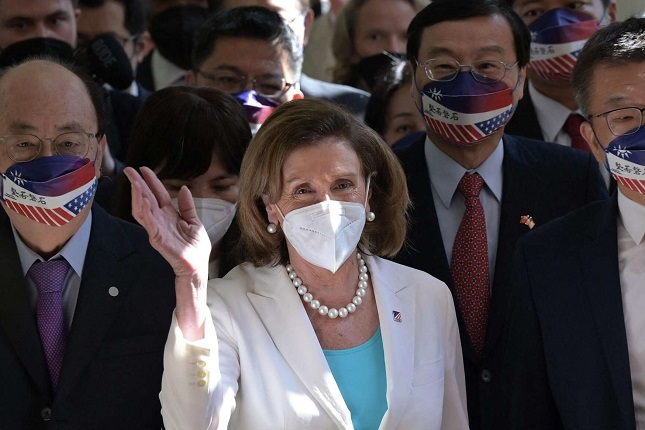
Nancy Pelosi in Taiwan. Photo: AFP / Sam Yeh.
The controversy among the Democratic establishment is also evident from their rhetoric. As soon as her plane's landing gear touched the Taipei runway, Nancy Pelosi published an article in The Washington Post, writing that her visit to Taiwan had to "make clear that the United States would not abandon its support for the island nation". At the same time, the White House said that the United States does not support the independence of Taiwan and continues to adhere to the "One-China Policy".
CNBC, a channel close to the Democrats, released an article quoting US administration sources about the White House's attempts to distance itself from the speaker's decision to visit Taiwan. However, the article's author stresses that Beijing is unlikely to want to delve into the US state structure specifications. "The fact that US policy toward Taiwan is deliberately ambiguous has only made it more difficult for the White House to draw a distinction between what Pelosi is doing and what the White House is saying," the CNBC piece explains.
As a result, Biden now appears indecisive and lacking in credibility, especially considering that Nancy Pelosi flew to Taiwan immediately after a long talk between the US and Chinese presidents, reportedly initiated by the US side with an intention to reduce tensions. Even if President Xi and President Biden had indeed reached any understanding at that point, it is now gone.
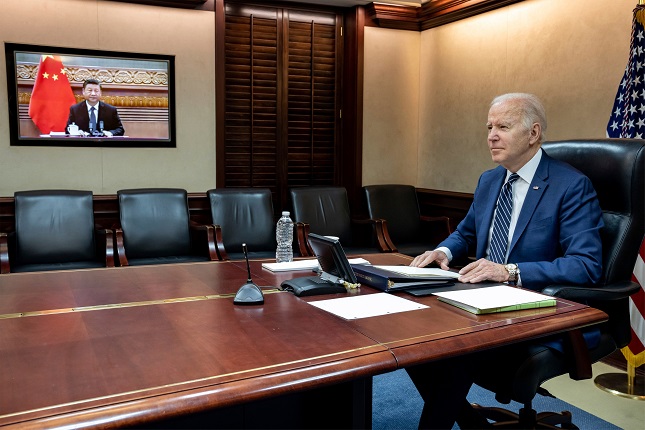
U.S. President Joe Biden holds virtual talks with Chinese leader Xi Jinping from the Situation Room of the White House in Washington. Photo: White house / Reuters.
The timing of Pelosi’s demarche could hardly be more unfortunate. In mid-autumn, the PRC will host the 20th anniversary Congress of the Chinese Communist Party. This edition of the Congress is particularly important for Xi Jinping, who, breaking with the unwritten tradition, is planning to run for a third term. Moreover, the Congress will approve personnel decisions, and the Chinese leadership will be discussing them as early as this month in a narrow circle at the Beidaihe resort.
President Xi, who for ten years of his presidency has built the image of a strong leader ruling a great power, has been put in the difficult position of having to react to US provocation.
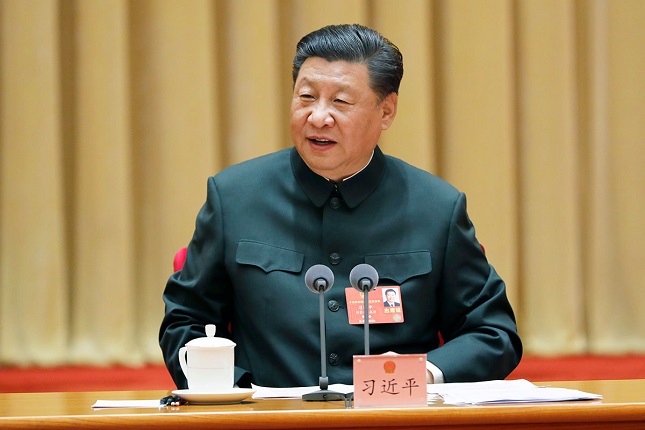
Xi Jinping. Photo: Zuma / TASS
On CNN, China's ambassador to the United States threatened the US with a "very firm, strong and powerful" response, but didn't go into detail. The state Chinese English-language newspaper, The Global Times, wrote that the Chinese would exercise "strategic patience" wisely. However, the article's authors stressed that China believes that the US has broken the existing status quo and Beijing will now establish a new one. The PRC will use the US mistakes to fundamentally change the situation, as it did in a few years in Hong Kong.
Immediately after Pelosi landed in Taiwan, the PLA initiated exercise in the territorial waters of the island. Observers note that this has been China's most decisive gesture since the 1960s. Joint manoeuvres by China's naval and air forces, long-range artillery firing in the Taiwan Strait, and non-nuclear missile launches in the sea east of Taiwan are now underway around the island.
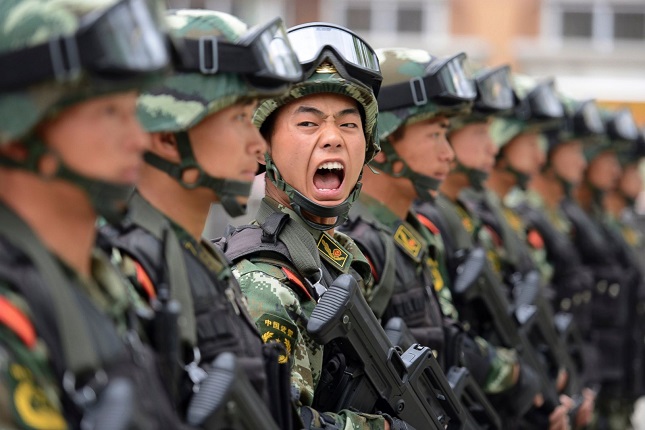
Chinese military Photo: infosmi.net
In the pages of The Global Times, Chinese commentators promise "an acceleration of the unification process". The article states that the PRC has many options for this: "striking Taiwan military targets, just as the PLA did in the previous Taiwan Straits crisis, pushing new legislation for national reunification, sending military aircraft and vessels to enter the island's "airspace" and "water areas".
However, the Chinese authorities' most brutal and most tangible response to the Taiwan flare-up triggered by the Americans will probably target the economic sector. The ongoing exercise causing problems for Taiwan's maritime trade by effectively blocking shipping around the island can also be viewed from this perspective. The Chinese authorities have promised Taiwan an "accelerated collapse" and a "major catastrophe".
Beijing has already suspended imports of citrus fruits and two fish products from Taiwan and, most importantly, stopped the supply of natural sand to the island, which will severely blow the construction industry and hit the semiconductor sector, which needs quartz sand. Given that mainland China provides up to 90% of the nation's needs for this material, such an embargo could mean the collapse of the global semiconductor industry.
Taiwan's global semiconductor market share is 63% (USD 147 billion). Moreover, Taiwan Semiconductor Manufacturing Company controls more than 50% of the worldwide semiconductor trade. By comparison, South Korea occupies 18% of the market, China – 6%, and other countries account for 13%. Moreover, Taiwanese TSMC controls 90% of production in the high-tech segment, producing chips of less than 10 nanometers. This is 10,000 times thinner than a sheet of paper.
As for Beijing's response to the US, it will most likely be strategic and protracted in time. Drastic steps are not in the Chinese style at all. Experts note that China is not very good at improvising and making quick decisions. Therefore, one must be patient in evaluating Beijing's moves in the game against the US. Perhaps, they will involve increased Chinese support for anti-American and anti-Western projects and initiatives. Including stronger support for Russia.
In general, China experts fear that by demonstrating the unpredictability and, in some places, even hysterical nature of their foreign policy, the US could indeed push Beijing to take more action to annex the island. Apparently, this will not begin in the next few days, but President Xi may decide to pursue the option of resolving the Taiwan issue by force.
An acceleration of military build-up, an even greater focus on import substitution, and a reduction of financial and technological dependence on the West would show that the PRC is heading for war over Taiwan. The visit by US House of Representatives speaker Nancy Pelosi contributed to the possibility that a forceful takeover of Taiwan could occur as early as the next five to ten years.
Main photo: Speaker of the U.S. House of Representatives Nancy Pelosi (center left) after receiving the Order of Auspicious Clouds by Special Grand Cordon, Taiwan's highest civilian honor, from Taiwan President Tsai Ing-wen (center right) at the President's Office in Taipei, Taiwan, 3 August 2022. © Chien Chih-Hung / Office of The President / Getty Images.
